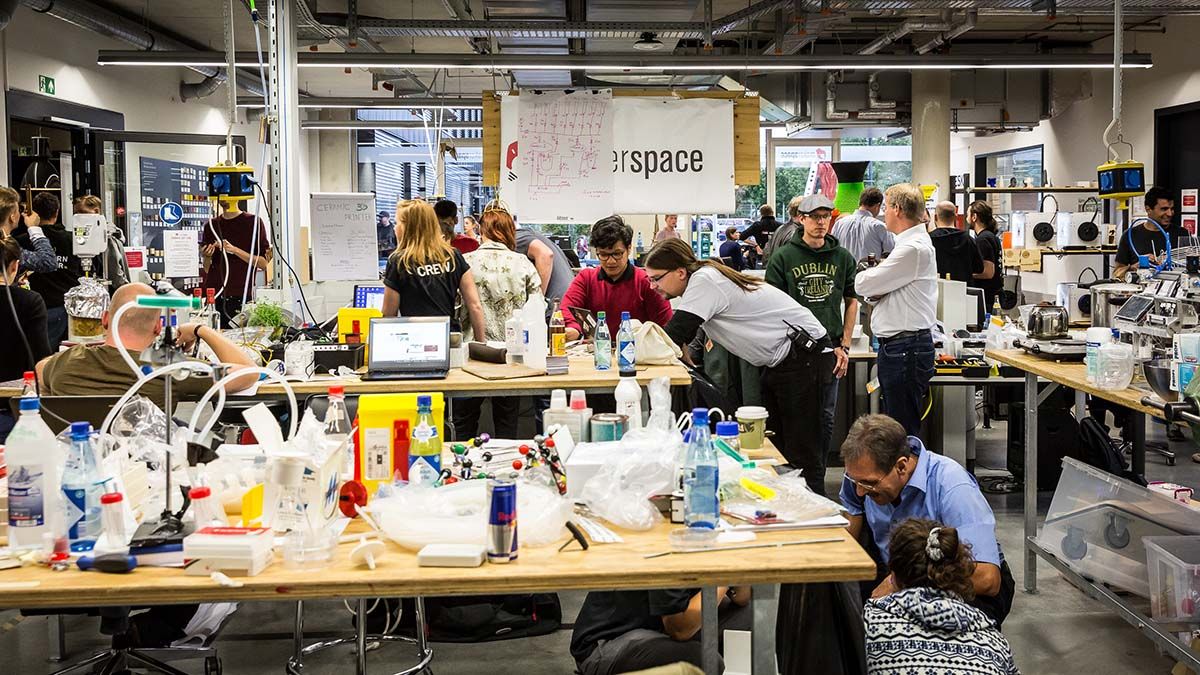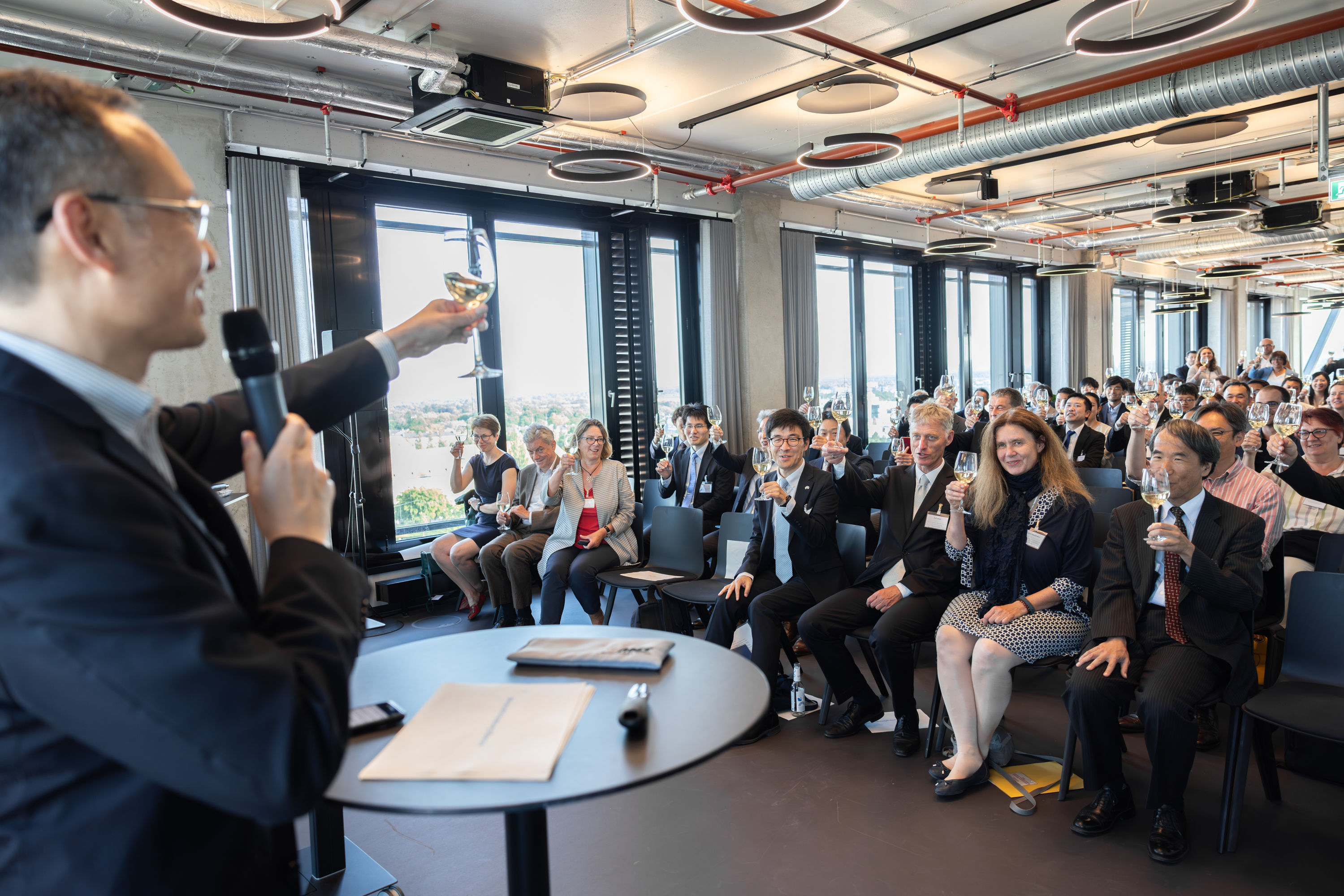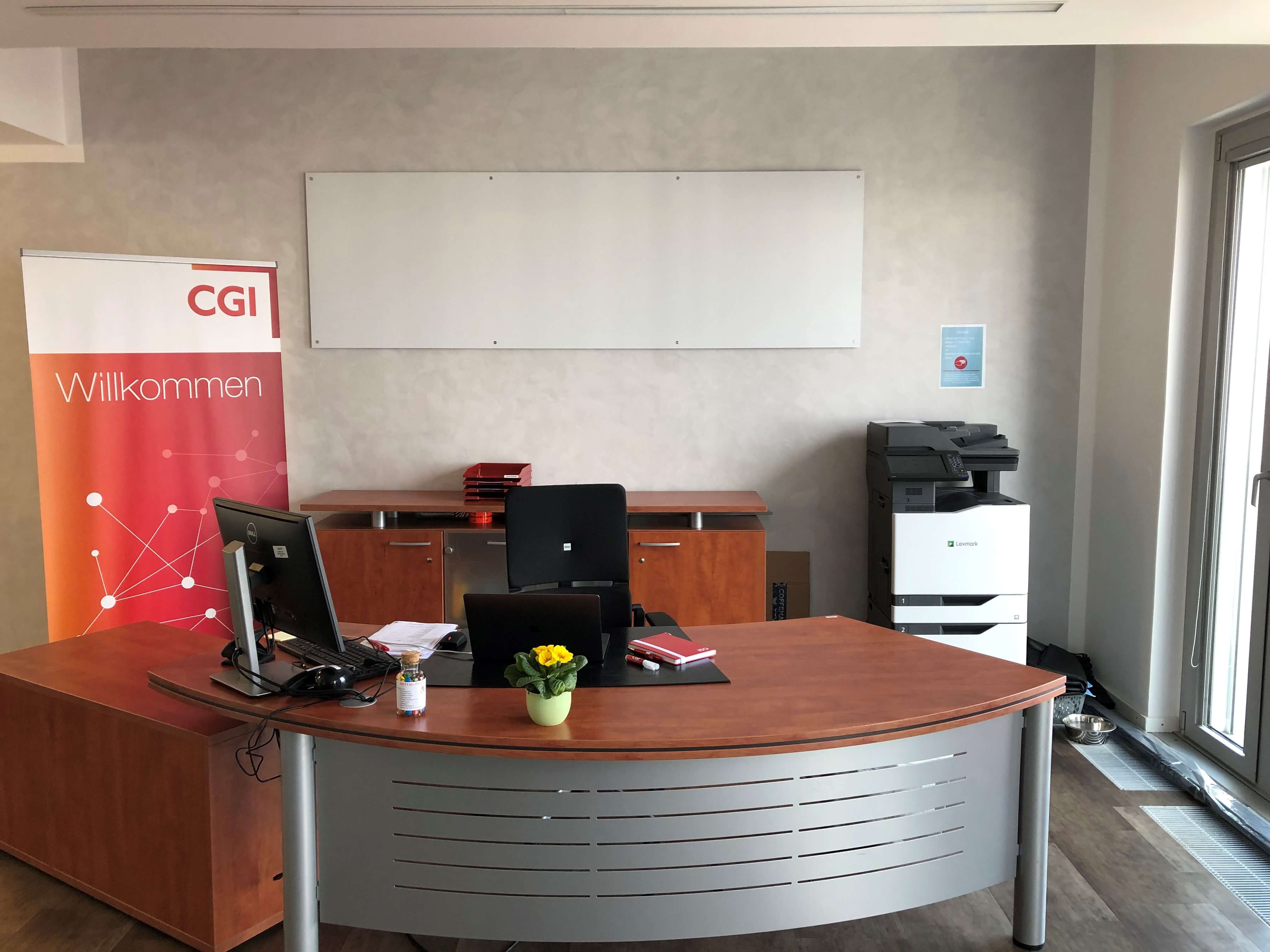- Startseite -
- Digital Bavaria -
- Blog #bytevaria - 5 minutes with … Mr Andreas Rathgeb, Senior Vice President Consulting Services at CGI
5 minutes with … Mr Andreas Rathgeb, Senior Vice President Consulting Services at CGI
The Canadian company CGI, with head office in Montreal, is one of the world’s leading IT and business consulting companies. It serves more than 20 industries and operates in 400 locations. In Bavaria, CGI has been present at the Munich location for over 30 years. One of the focal points is the public sector. At the beginning of 2021, CGI was awarded a contract by the Bavarian State Ministry of Justice for a managed IT services contract with a volume of €250 million. The goal is to further develop the ministry’s IT infrastructure and services at 220 locations throughout Bavaria. Today we talk to Andreas Rathgeb, Senior Vice President Consulting Services, about the opportunities of digitisation in the public sector as well as CGI’s developments and plans in Bavaria.
Mr Rathgeb, please briefly explain CGI’s fields of activity, which core competencies does the company claim to have?
We are one of the largest independent providers of IT and business process services. With 77,000 employees worldwide, we offer a broad portfolio of services – from strategic IT and business consulting to systems integration, managed IT and business process services, and intellectual property solutions. This includes a variety of new opportunities within digitisation and the IT of tomorrow. However, we also support our clients in introducing IT projects through change management and communication. Our approach is holistic and individually tailored to the needs of our clients.
Your mission is to drive digitisation and innovation in the public sector – currently also in the area of the Bavarian judiciary. What does that mean exactly? Can you explain which digitisation measures will be implemented in the next steps?
Bavaria is focusing very strongly on digitising the public sector. Bavaria was also the first federal state to take the importance of the digital transformation into account by setting up an independent Digital Ministry. As experts in this field, we support administrations in the digital transformation, for example in digital sovereignty, cloud services and the introduction of the e-file. Specifically, we are supporting the Ministry of Justice to advance its IT modernisation and provide better service to its citizens through digitalisation and innovation management. Our managed IT services include, for example, equipping all meeting rooms with digital media technology, replacing traditional telephony with unified communications, and projects relating to the introduction of electronic legal transactions and electronic files.
What is your vision for the future of public sector working and what do you think the digital future will bring us over the next few years? Do you see Bavaria as a pioneer here?
As a tech hub, Bavaria offers excellent conditions for the digital transformation of public authorities. Our vision is that not only will the administrations’ previous processes be digitally mapped. Rather, future processes should enable public authorities to make the most of the opportunities offered by digital transformation. Digitisation not only makes it possible to make things easier, but also better. It can also ensure greater transparency and citizen participation. In my view, this represents an opportunity for democracy because we can be more inclusive. For example, we have developed the CGI DigitalRadar, a software that ensures that complex digitisation processes are displayed very well with all their interconnections. At the City of Munich, it is successfully used to communicate digitistion projects to the citizens in a clear way. Another example: We have developed a software for digital school lessons that is used very successfully in France. With this, we would also like to contribute to enabling teachers as well as students in Bavaria to have a better teaching and learning experience. This can make homeschooling fun and add value.
The coronavirus pandemic has permanently changed the professional and corporate world. How is your company dealing with the crisis?
There are two dimensions to this question: On the one hand, the pandemic has led to an huge digitisation push across the board, which is reflected in our superb order situation. On the other hand, the question refers to our company itself: CGI was already very well positioned, as our offices have long been designed according to a multi-space concept and we have established New Work working methods. The switch to working from home therefore worked out extremely well. We also advise clients on how to collaborate remotely in the best possible way.
Bavaria has an excellent ecosystem of state-of-the-art public administration, strong entrepreneurship, forward-looking innovation and start-ups in a hospitable environment. Nowhere else is such a good work-life balance possible with many local recreation areas. That’s why it’s a lot of fun to work together on IT projects for and with our customers in Bavaria.
CGI has been active in Munich for over 30 years. What were or are the decisive reasons for this location? What is the significance of the Munich location for CGI?
We always attach great importance to the fact that our consultants work in the same city as our clients. This brings many advantages: less travel, fewer stays in hotels and a better work-life balance for our employees. Above all, however, our customers benefit from this physical and personal proximity, which we combine with a flexible global delivery network. Another decisive factor in the choice of Munich as a location was that it is a kind of Silicon Valley on the Isar, and that many DAX companies as well as large administrations and public authorities have their head offices here. Because we always want to be close, going anywhere else but Munich was out of the question.
There are now well over 500 CGI employees working in the state capital. How do you recruit your qualified staff and what do you do to retain them?
Anyone who is growing rapidly, naturally has an huge need for highly trained specialists. In Bavaria, we benefit from the fact that Munich has two outstanding universities, Ludwig Maximilian University and the Technical University. We are delighted with the professors being open to networking with the business community. Time and again, we also give research assignments to universities and value the ecosystem that has been created. However, we are also closely networked with the other universities in Bavaria, for example through working students and master’s students. It is the rule rather than the exception that they stay with us after their studies. We also attract experienced professionals through our open corporate culture. Anyone working for us is called and seen as a “member”. They feel a close bond with the company and with each other. We have even formulated our own dream: the CGI Dream, in which we want to create a climate where people enjoy working. Something that is often not common for a consulting firm, but is part of what we do: we respect a work-life balance. Incidentally, we do not only rely on new professionals, we are also very proud of the fact that we have a low fluctuation rate.
As a result of the new order, an additional third location was opened in Munich. How many jobs have been created by this and what are the plans for the future?
As a result of the order from the Bavarian Ministry of Justice alone, we have so far recruited 80 new employees. There will surely be many more to follow. As a result, we were able to open a third location in Munich and are now also represented in the north near the A9 motorway, in addition to Moosach and Giesing. In total, we still have more than 100 positions advertised. Our signs continue to point to growth in the next few years.
How do you assess the general conditions in Bavaria in the area of digitisation? What advantages does Bavaria offer?
Bavaria has been an innovative location for decades and has not stopped at the high-tech agenda from former Minister President Edmund Stoiber. It is quite impressive how Bavaria is currently focusing on the topic of artificial intelligence and has advertised 100 new professorships in this field. As a result, we also hope that graduates will bring innovations to our company and that our partnerships with universities will be expanded even further. What is also exciting for us is the diversity of sectors and the cross-industry networking, which is rarely as pronounced as in Bavaria. Because Bavaria is always ready to lead the way, we gain advantages in Germany and worldwide by working here.
Bavaria has excellent business relations with Canada, not least because of its own foreign representation in Montreal. Does the close exchange have an influence on your company? Are there big differences between Bavaria and Canada or Québecin terms of the working culture?
The fact that the Free State of Bavaria and the Province of Québec maintain close contact is naturally convenient for us as a Montreal-based company. We were delighted that the Bavarian Digital Minister Judith Gerlach has already visited our company head office. Munich and Montreal have a lot in common: both cities are very open to digitalisation, economic leaders and drivers of innovation in their countries. The working culture is a perfect match, as commitment, openness and trust also play an incredibly important role in Canada.
What do you appreciate about Bavaria – how and where do you personally relax in the Free State? Do you have a favourite place or a favourite spot in Bavaria you can recommend to us?
What I love about Bavaria is the nature with mountains and lakes, the sociability with beer gardens and the technologies. I am a fan of Tegernsee and like to go hiking or mountain biking there. Tegernsee is also very easy to reach from Munich.

Unternehmen
CGI

Branche
ICT

In Bayern seit
30 years, Munich

Headquarter
Montreal (Québec), Canada

In Bayern vertreten mit
Branch

- von Veronika Reichl (on parental leave)
- Investor Services Digitalization & Mobility
- Alle Artikel dieses Autors anzeigen

春日井市/エアランゲン:ケーブルのスペシャリストである日本のホッコーが、ニュルンベルク=エアランゲン大都市圏にヨーロッパ本社を設立

2021年スタートアップへの投資(2):デカコーン1社、ユニコーン6社など、バイエルン州のスタートアップに多額の投資





